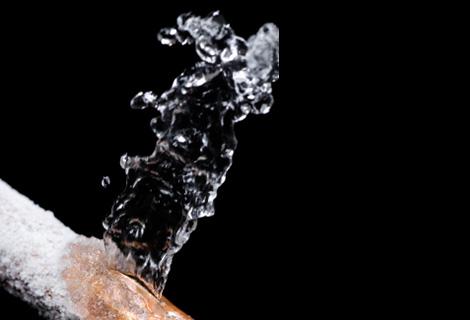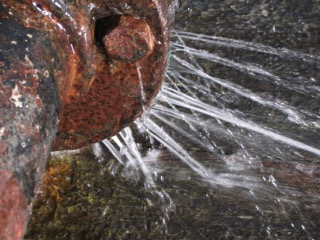Burst Pipes? No Panic! Just how to Identify and Fix Rapidly
Burst Pipes? No Panic! Just how to Identify and Fix Rapidly
Blog Article
The writer is making several good observations on What to Know Before Installing a Dishwasher overall in this content underneath.

A ruptured pipe is a major emergency; you can just stand as you watch water you pay very much to rejoin with the earth. In worse instances, you notice a pool on your kitchen area flooring, which is a great trip risk, particularly if you have youngsters around. If the pipeline that burst was in your walls, bad news: you may need to paint that whole area.
Just how can a calamity like a burst pipe be avoided as well as handled? Well, by paying attention to your specialist emergency plumbing professionals and also adhering to these rules.
How do I know when my pipes have burst?
Varying water pressures
Pipes do not just burst in a day. You may have noticed that your kitchen faucet or shower does not run quickly when you transform the tap. It might stop for a couple of seconds and after that blast you with even more pressure than normal.
In various other circumstances, the water might seem normal at first, then drop in pressure after a few seconds.
Wet walls and water spots
Before a pipe bursts, it will leak, many times. If this consistent dripping goes undetected, the leakage may graduate into a broad laceration in your pipeline. One simple method to avoid this emergency is to watch out for wet walls ad water stains. These water stains will lead you right to the leak.
Puddles under pipes and sinks
When a pipe ruptureds, the discharge creates a pool. It might appear that the puddle is growing in size, and no matter the amount of times you wipe the pool, in a couple of minutes, there's one more one waiting to be cleaned. Often, you may not have the ability to map the pool to any type of visible pipes. This is a sign to call a specialist plumber.
Untraceable leaking noises
Pipe bursts can take place in one of the most undesirable locations, like within concrete, inside walls, or under sinks. When the house goes quiet, you might be able to hear an annoyingly relentless trickling sound. Even after you've examined your shower head as well as kitchen area tap, the trickling might continue.
Dear viewers, the leaking may be coming from a pipeline inside your wall surfaces. There isn't much you can do about that, other than inform a professional plumber.
Shut off the Water
When water ices up, it broadens in volume by concerning 9 percent. And also it expands with significant pressure: The pressure inside pipelines might go from 40 pounds per square inch to 40,000 psi! No pipeline can hold that much pressure, so it breaks open. The break may occur where the ice kinds, however more often, it takes place where water pressure locates a vulnerable point in the pipe. That may be inches or perhaps feet from the frozen location. Discover the water shutoff valve and also shut off the water to stop more damages. You might additionally need to turn off the electricity also, depending on where the leakages takes place as well as just how big it is.
Infected water
Many people presume a ruptured pipe is a one-way electrical outlet. Quite the contrary. As water drains of the hole or wound in your plumbing system, pollutants find their way in.
Your water might be contaminated from the resource, so if you can, check if your water container has any troubles. However, if your alcohol consumption water is supplied as well as detoxified by the city government, you need to call your plumber right away if you see or scent anything funny in your water.
What do I do when I detect a burst pipeline?
Your water meter will certainly continue to run also while your water wastes. To minimize your losses, discover the major controls as well as transform the supply off. The water mains are an above-ground structure beside your residential or commercial property.
How to Fix & Detect a Leaking Pipe
How Do I Know if a Pipe is Leaking?
Leak detection tests can help you determine if your pipe has a leak. Even if you don’t see an apparent leak, you should still conduct leak detection tests regularly to save water and money—and prevent major damage to your home.
Water meter. It can be helpful to figure out what your usual water meter usage numbers are and then monitor them regularly. To monitor your meter, first, turn off all water faucets in your home. Check the meter and write down the numbers. In a few hours, check the meter again. If the numbers have changed, you have a leak. Water gauge. Use a water gauge to test your water pressure. Your showerhead should produce a certain amount of water pressure based on its model and design. If the pressure is lower than it is supposed to be for that specific showerhead, your home likely has a leak. Puddles. Look inside your bathroom, laundry, and kitchen sink cabinets. Puddles around the cabinets or around toilets, tubs, showers, and washing machines indicate the presence of a leaking pipe. You may also notice loose tiles, peeling or flaking paint, or mold caused by water accumulation. Napkin test. Even if you don’t see any puddles, you may still have a leak. You can test for water leaks in the bathroom, laundry, and kitchen by wiping below-sink connections with a napkin, paper towel, or piece of toilet paper. If it becomes damp, you probably have a leaking pipe under the sink. Discolored walls. Walls that are discolored—usually with brown or yellow stains—or bulging might mean that they have been impacted by water damage caused by a leaking pipe. Smell. A leaky pipe will create sitting water, and over time, that water may develop a musty smell. If your home smells musty, but you can’t locate the source, it may be due to a leak. Steps for Fixing a Leaking Pipe
A leaky drain can be remedied by tightening the pipe base, replacing the drain seal, caulking the rim, and tightening the pipe nut. Similarly, a leaking toilet pipe can be treated by tightening the packing nut. You may also need to replace the valve. A leaky faucet may just need tightening or replacement of the washers. If that doesn’t work, consider replacing your faucet. If your pipe has a hole in it, you may want to use a pipe leak sealer or pipe leak tape. This quick fix for water pipe leaks can also temporarily fix a copper pipe leak. https://www.ahs.com/home-matters/quick-tips/how-to-tell-if-pipes-are-leaking/

I am very intrigued by What to Know Before Installing a Dishwasher and I'm hoping you enjoyed the blog entry. Sharing is caring. Helping people is fun. Many thanks for your time. Come back soon.
Customer Reviews
Report this page